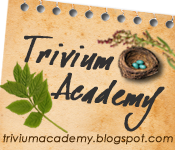I will use this as my barometer throughout the year to monitor Camille's and my progress because it is not just up to her but up to me as well to teach.
Language Arts
Reading Objectives:1. Know common third grade-level sight words.
Source: http://gemini.es.brevard.k12.fl.us/sheppard/reading/dolch.html
2. Decode phonetically regular multisyllabic words.
3. Identify antoymns, synonyms, homophones and homographs.
4. Use index, glossary, and table of contents to locate information in books.
5. Read grade-appropriate fiction and nonfiction material fluently, both silently and aloud.
6. Show comprehension by answering questions (or narrating) about a finished text.
7. Experience a wide range of literature selections, including fiction and nonfiction books, multicultural folktales, myths and legends, and poetry.
a. Be able to describe and define simile, metaphor, alliteration, and onomatopoeia.
8. Differentiate between fiction and nonfiction, biography and autobiography.
9. Follow multi-step written instructions.
Writing Objectives:
1. Switch to cursive in all written work, with practice to perfect letter shape, size, slant, and spacing. 2. Write frequently, exploring a range of genres, including stories, personal narratives, poems, essays, and reports.
3. Organize writing in coherent paragraphs.
4. Know and use the correct format for a friendly letter—including heading, saluation, body, and closing—and the correct way to address an envelope.
5. Distinguish between complete and incomplete sentences.
6. Use capital letters correctly.
7. Use periods, question marks, exclamation points, and quotation marks correctly. Use commas between the day and year when writing a date, between city and state when writing an address, and in series within sentences.
8. Use apostrophes in contractions and in singular and plural possessive nouns.
9. Indentify common prefixes and suffixes.
10. Know common abbreviations.
11. Indentify nouns, proper nouns, pronouns, verbs, and adjectives; and past, present, and future tenses of verbs.
12. Use conventional spelling for the bulk of written work.
Listening and Speaking Skill Objectives:
1. Make short oral reports. 2. Tell stories to a group; present short dramatizations.
3. Memorize and recite short poems.
Study Skills
1. Be able to use the dictionary, encyclopedia, and thesaurus. 2. Be able to use the telephone directory.
3. Alphabetize material to the third or fourth letter.
4. Be familiar with the use of the library.
Mathematics Objectives:
1. Number Theorya. Counting by 1’s through 10’s
b. Even and odd numbers
c. Word numbers 0-999,999,999
d. Roman numerals
2. Place Value
a. Ones’, tens’, hundreds’ and thousands’ place
b. Ten thousands’ place
c. Hundred thousands’ place
d. Millions, ten millions’, and hundred millions’ place
3. Number Order
a. Ordinal numbers to 100
b. Estimation
c. Greater than and less than
d. Equal and not equal
e. Associative, commutative, and distributive principles
f. The number that comes before and after a given number
4. Addition
a. Addition terms
b. Regrouping
c. Word problems
d. Word sentences
e. Equations
5. Time
a. Hour, half hour, quarter hour, five minute and one minute
b. A.M. and P.M.
c. Word problems
d. Equivalents
6. Subtraction
a. Subtraction terms
b. Regrouping
c. Estimation
d. Word problems
e. Equations
7. Money
a. Counting coins and bills
b. Adding, subtracting and multiplying money
c. Word problems
8. Multiplication
a. Multiplication terms
b. Facts for 0-10
c. Word problems
d. Regrouping
e. Equations
9. Geometry
a. Shapes and solids
b. Symmetry
c. Congruent and similar shapes
d. Geometric terms
10. Fractions
a. Fractional part of whole and set
b. Fractional words
c. Comparison of fractions
d. Comparison of fractions and decimals
e. Equivalent fractions
f. Mixed numbers
g. Reducing fractions
h. Add and subtract like fractions and mixed numbers
i. Word problems
11. Decimals
a. Tenths of a whole
b. Comparison of decimals, fractions, and mixed numbers
c. Word numbers
d. Addition of decimals in tenths
12. Division
a. Division terms
b. Facts 0-10
c. Single-Digit divisor
d. Double-digit quotient with regrouping and remainder
e. Word problems
13. Measurement
a. Inches in halves, fourths, and eighths
b. Centimeters in tenths
c. English units of measure
d. Metric units of measure
e. Map reading
f. Temperature in Fahrenheit and Celsius
14. Graphs
a. Bar graphs, line graphs, pictographs and grids.
15. Area, Perimeter, and Volume
a. Perimeter of shapes
b. Area of rectangle and square
c. Volume of cube and rectangular prism
d. Word problems
16. Ratio
a. Comparison of two numbers
b. Word problems
History
1. Study the administrations of the Presidents as we approach them within our history studies. 2. Study the career of Napoleon and the French Revolution.
3. Survey key events that launched the Industrial Revolution in England and America.
4. John Marshall and the Supreme Court
5. The Louisiana Purchase
6. The War of 1812.
7. South America’s history and survey of South American culture, flora, fauna and Simón Bolivar.
...more to be added
Geography
1. Revise and reinforce basic geographical concepts covered in previous studies. 2. Define and describe the major kinds of climate and relate these to geographical locations.
3. Survey major rivers of the world.
4. Geography studies should be closely linked to history topics.
5. Memorize the states and their corresponding capitals, including state abbreviations of the United States by region.
6. Be able to identify and locate the continents.
7. Be able to indentify and locate major countries of each continent.
General & Life Science Objectives:
1. Study human anatomy and physiologya. Five Senses
b. Major organs and systems
c. Study germs, bacteria and viruses
d. Learn the introductory components of animal and plant cells.
e. Introduction to DNA
2. Learn about the history of medicine, be able to identify a scientist to a single major contribution.
3 Study botany physiology, anatomy, classifciation and reproduction.
4. Learn the introductory components of agriculture
5. Learn to use scientific tools such as: pocket microscope, stethoscope, and continue to learn key classification and indentification processes.
6. Continue using the scientific method to assimilate science topics learned through experiments.
7. Continue to build observation skills during nature study and experiments.
Foreign Language Objectives:
1. Read foreign language texts appropriate to skill level. 2. Write sentences and short passages using correct grammar and vocabulary
3. Build vocabulary and oratory skills in chosen language through games, skits, recitations and conversations.
Art Objectives:
1. An introduction to representational drawing geared to the attention span and motor coordination. 2. Learn to recognize the elements of shape and are introduced to various choices of how to interpret the lesson, in their own creative rendering of the subject and background.
Music Appreciation
1. Learn about 4 composers during the year through biographies. 2. Be able to identify the 4 composers major compositions by the end of the year.




























12 comments:
Fabulous job! I worked on some 1st through 4th goals last year but could not get our 2nd gr goals finished yet. *sigh*
Yours look very well thought through and I hope they are helpful as a compass for this year!
Andrea
ps. LOVED the Palin speech! Maybe we could learn how to dress a moose, huh? :-)
You know, I'm really happy my child is Camille's age/grade. :)
Fantastic job, Jessica. I hadn't yet got to my goal list for this school year, and you've helped me to see another way to work through this process. I like it. Thanks for inspiring me to work some more!
Cool!
I really like the way you have put this together. I think that it would help me out a lot to have specific goals that I could check off throughout the year. I'm all about lists - I just can't help myself :) This looks like a great one!!
What a great and helpful list. It took a lot of work, I'm sure. Good luck for checking everything off!
~ Sharon at Equip Academy
Wow this is impressive. I am still writing up the goals for my son also age 8 and in the third grade. I recognize at least some of this from memory from The Well Trained Mind.
One question. Did you forget subtraction? I see addition, multiplication and division. Just curious. Maybe you were so busy writing in everything that it was just left off?
I thought my plan for older son was done then realized I left off spelling and vocabulary. Whoops. Chalk it up to fatigue. LOL.
Christine,
You're right! Oh my, I left off subtraction. Sigh. I'll add it tomorrow when I post pictures from today's nature walk. Goodness gracious!
I forgot spelling and vocabulary too but I wasn't sure how to put goals for those since we're not doing anything formal. Hmmm. I'll have to think about that.
I loved your comments the other day about motherhood and online honesty. I meant to visit you and thank you. I hope you'll accept my lazy thanks now. :)
Jessica
This is really impressive, in its breadth, depth, and level of detail.
Camille will be a very well-educated young lady!
Great List!!! Where did you get all this info to create the list? DO you have one in your older post for the younger years?
Sorry, this is the first time I've put our goals in this format both online and in a checklist for myself. In the past I've just photocopied each curricula's goals and used that.
This list is from:
-Home Learning Year by Year by Rebecca Rupp (there are more details for each concept in the book that I didn't include)
-Horizons Math 3
-The Educated Child by William Bennett
-A Monart school's objectives from their website
-My own personal goals based on our various curriculum.
Hope this helps!
I was thinking what another commentor was...so glad I have a child this age!
Lee
Post a Comment